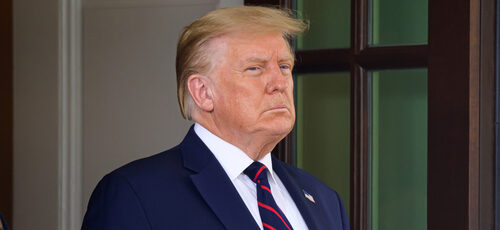
Presidential Immunity Debate Heats Up At Supreme Court
On Thursday, the Supreme Court heard lengthy arguments about the proper extent of presidential immunity, with particular focus on whether former presidents can be criminally charged for actions taken during their time in office. The court is focused on President Donald Trump’s legal team’s appeal of a lower court decision that permitted charges filed by Special Counsel Jack Smith to proceed against him. Smith, appointed by Joe Biden’s Attorney General Merrick Garland, has based his criminal case on allegations of President Trump’s actions on and surrounding January 6, 2021.
If you can’t listen to audio, I’ll summarize.
“We wrote a memo and cleared ourselves of any wrongdoing.” https://t.co/GP5PQf9aNb
— Cernovich (@Cernovich) April 25, 2024
Trump attorney John Sauer defended the principle that presidential actions are protected from prosecution after the chief executive leaves office, stressing that undermining this immunity could distort presidential decision-making. “For 234 years of American history, no president was ever prosecuted for his official acts,” Sauer argued.
He added: “If a president can be charged, put on trial and imprisoned for his most controversial decisions as soon as he leaves office, that looming threat will distort the president’s decision-making precisely when bold and fearless action is most needed.”
Michael Dreeben appeared to represent Special Counsel Smith. He countered that the Supreme Court has never acknowledged absolute immunity for presidents, claiming President Trump seeks an unnecessary extension of the constitutional principle of executive immunity. Dreeben cynically argued that Trump’s problem is he didn’t have a “memo” from the DOJ giving him legal advice to conduct a putatively criminal act. In addressing a question about President Obama’s potentially criminal act of killing U.S. citizens abroad through drone strikes, Dreeben argued the legal opinion of a DOJ lawyer gave Obama immunity.
The justices probed the boundaries between official and private acts. Chief Justice John Roberts raised a hypothetical scenario where a president might accept a bribe in exchange for appointing an ambassador, questioning the delineation between personal gain and official duty. Justice Elena Kagan further tested this boundary with examples from the indictment against Trump, distinguishing between actions like falsifying election results, which she deemed private.
Justice Brett Kavanaugh expressed concerns about the broader implications of limiting presidential immunity. He emphasized the constitutional significance of ensuring that the laws reflect a clear stance on presidential acts, hinting at a cautious approach to redefining the scope of immunity that could affect future presidencies.
As the court considers this complex issue, the implications extend beyond Trump’s legal battles, potentially reshaping the legal landscape for all future presidents. The decision, expected anytime between now and early July, is likely to set a significant precedent that will affect presidential politics in the future. A ruling significantly limiting immunity could deter bold decision-making in the Oval Office, making presidents wary of taking decisive actions for fear of future attacks from political opponents. Unless the Supreme Court puts a stop to it, that is the situation currently playing out in the show trials of President Trump in advance of Election Day.